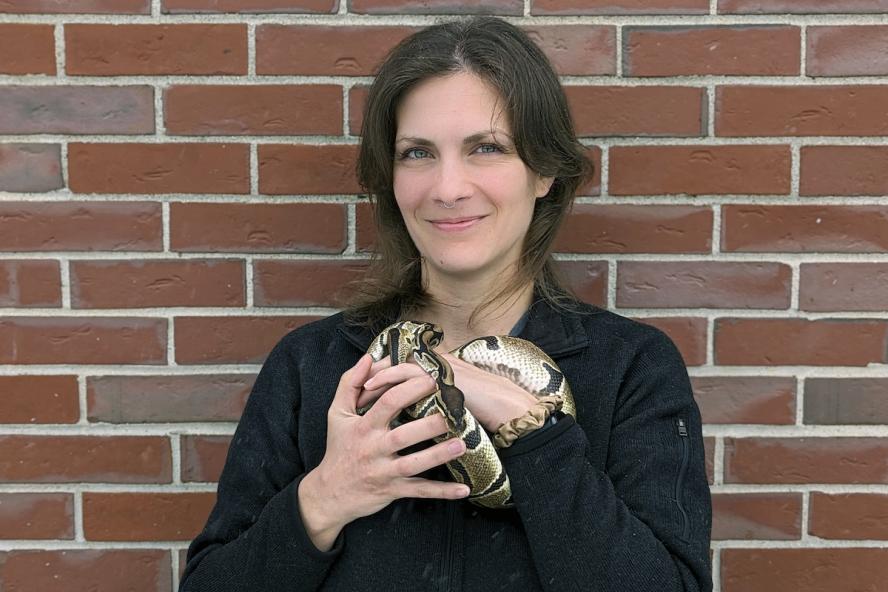-
About
- Leadership & Faculty
- News & Events
-
Academics
- Graduate
- Advanced Clinical Training
- Continuing Education
- Academic Departments
- Academic Offices
- Simulation Experiences
-
Student Life
- Offices
-
Research
-
Hospitals & Clinics
- Emergency Care
- Hospital Services
-
Community Outreach
- Volunteer
Welcome Back to the Herd: Marjorie Bercier
Experienced clinician appointed assistant professor of zoological medicine

A faculty member at Cummings School of Veterinary Medicine since 2019, Dr. Marjorie Bercier (she/elle) was reappointed in January as assistant professor of zoological medicine in the Department of Clinical Sciences after three semesters as an adjunct assistant professor.
Bercier earned a DVM from the University of Montreal and has worked at various Association of Zoos and Aquariums-accredited zoological institutions in the United States and Canada. “After many years in this field, I realized that I need a stimulating work environment that allies clinical work with academic work (teaching, research, and scholarly activities), she explains.
“Working at Cummings School allows me to do that. I also appreciate the flexibility of this position, to pursue my research interests and the vision I have for my service. I feel supported and valued, and that is gold.”
As a professor, Bercier can contribute to the advancement of zoological medicine, which she covets. “Our field is vast and there is a dire need for scientific exploration on many levels,” she says. “… and working in academia gives me the unique opportunity to advocate for my specialty and for my patients, while shaping the mind of the next generations of veterinarians.”
She is thrilled to return to a full-time position. “I have missed working with the exceptional group of people here, particularly the Zoological Medicine service staff. I consider myself very lucky to work with such a dedicated, qualified, and compassionate group of technicians, house officers and faculty.”
Personally, Bercier is eager to re-enroll in the Tufts University online Master of Public Health program, to complete her degree which she started in 2019. “The program has made me a better scientist, teacher and mentor.”
She is also excited to continue her research in exotics and zoo animals. “I am currently investigating plasmatic d-dimer concentration in juvenile Asian and African elephants, with and without Elephant Endotheliotropic Herpesvirus (EEHV; a deadly disease in captive and wild elephants). Results from this project may help in the early diagnosis of hemorrhagic disease in elephant calves, and could provide an additional tool for zoo and wildlife veterinarians, ultimately leading to a successful outcome.”
Department:
Dept. of Small Animal Clinical Sciences